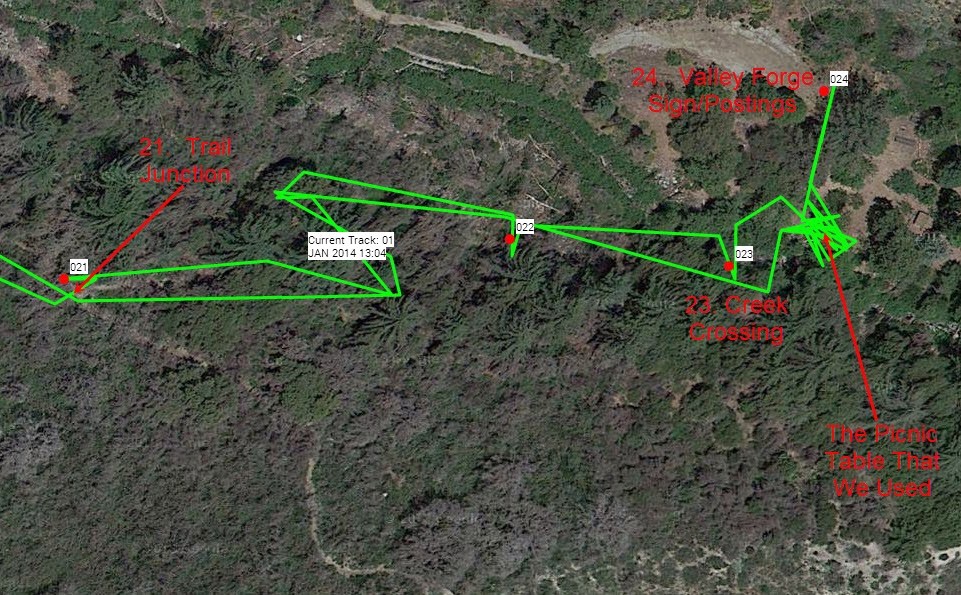Thank you to everyone who gave me input.
OBSERVATIONS
1. There does seem to be a loss of detail (and therefore an under-reporting of mileage) in the process of saving a track. At the end of my hike, my "odometer" read 6.28 miles. When I uploaded to my computer, my mileage read 5.94 miles. That's a loss of about 1/3 miles, which to me is fairly significant, particularly since it was only a 6 mile hike. It looks like I'm losing about 0.05 miles per mile recorded just due to the way the track is saved alone.
2. If you look at the plot of my route on a satellite photo (see above link), you can see that the GPS basically draws a straight line from when ever it marks a point. Trails are seldom straight lines. I think it's safe to assume that a GPS will always under report.
3. Give #1 and #2, above, it would seem that GPS unit reported mileages are going to be significantly lower than actual mileages. How much? I'm not sure, but perhaps 0.1 mile lost for every actual mile. The shape of the trail and general topography as well as things like how many GPS/Glonass satellites were in "view" would affect this.
4. If one were to go to the above link and toggle the view to topo map, one would see that the route of things like the Gabrieleno National Recreation Trail shown on the map is quite a bit different than what my GPS plot reveals. While topo maps in the US are generally pretty good, there are a lot of errors.
5. If one looks closely at the satellite photo, one can see some of the road or trail that I was travelling on. The GPS doesn't follow exactly. Sometimes it is in error off to one side; sometimes the other. Clearly, GPS, at least when used in the form of a hand held unit like mine, is an approximation.
GENERAL REMARKS
The Garmin eTrex 20 interface is pretty quick and easy to learn albeit primitive compared to my Samsung Smart Phone. The GPS is interesting, and I look forward to using it more.
Overall, a fun hike. It was even more fun because I had such a good hiking partner.
HJ

